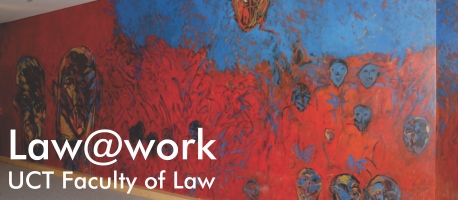
This course offers a comprehensive exploration of the Animals Protection Act (APA), from its historical roots to its current enforcement challenges.
Learn how the APA defines cruelty, outlines offenses, and empowers SPCA inspectors. Examine real cases, legal procedures, and collaboration with law enforcement. You’ll also explore gaps in the law, constitutional questions, and international comparisons. A must for anyone interested in strengthening legal protections for animals and understanding the global shift toward recognizing animal sentience and welfare rights.
When and where?
13 to 15 April 2026, 14:00 to 16:00 SAST
This course will be held remotely, most likely on Zoom - exact details will be sent to registered participants a few days before the course.
Course outline
The following topics will be covered:
Historical and legal context:
- The origin and evolution of the APA
- Relationship between the APA and the Constitution of South Africa (e.g. Section 24 – environmental rights)
- International influence: global trends in animal protection and South Africa’s role
Scope and definitions in the Act
- Key definitions (e.g. “animal”, “owner”, “cruelty”)
- What animals are covered?
- Understanding legal responsibility: who can be held liable
- The significance of terms like “unnecessary suffering” and “inhumane treatment”
Prohibited Conduct and Offenses (Section 2)
In-depth breakdown of all offenses under Section 2:
- Neglect
- Beating, overloading, starvation, confinement
- Animal fighting
- Failure to provide veterinary care
- Case law interpretations of these offenses
- Strict vs. subjective liability in the APA
Powers of SPCA Inspectors and Enforcement Agents
- Appointment and authority of SPCA Inspectors
- Powers of entry, search, seizure, and arrest under the APA
- Collaboration with SAPS and the NPA
- Use of warrants vs. urgent entry
- Handling seized animals: legal and ethical considerations
Legal procedure and prosecution
- How charges are laid under the APA
- Applicable penalties and sentencing guidelines
- Overview of prosecution through the Criminal Procedure Act
Gaps, challenges, and criticisms
- Challenges in enforcing the Act:
- Resource limitations
- Low prioritization in courts
- Ambiguous language in legislation
- Calls for reform and modernization of the APA
- The need for constitutional recognition of animal welfare
Comparative and emerging legal perspectives
- Comparative analysis: UK, USA, and EU animal welfare laws
- The shift toward recognising animals as sentient beings
- Legislative proposals and the status of APA amendment bills
Who will benefit from this course?
Legal professionals (attorneys and advocates), local government officials, and prosecutors
Presenter
Lisa V. Thomas, a former criminal defence advocate and professional legal assistant in Durban, has a wealth of experience in both private and public law practice. Lisa earned her LLB from the University of Kwazulu-Natal (Howard College Campus), completed her pupillage, and was admitted as an advocate/barrister in 2008. A passionate advocate for humanity and ethics in the South African legal profession, Lisa is especially committed to supporting entry-level legal professionals. Lisa shares her extensive legal expertise through LinkedIn teaching posts, a mentorship and career coaching platform, and her legal academy. She also provides ad-hoc litigation training for legal professionals and is a presenter with SA Legal Academy, where she developed their candidate attorney short course. Guided by empathy and authenticity, Lisa is devoted to being a lifelong resource for aspiring legal professionals.
How much?
R3,300 per person
Certificate
A digital certificate of attendance from UCT will be issued to those who attend the full course.
Please note that the digital certificate can only be viewed on a secure portal. It cannot be downloaded or printed. You will have the option of ordering a hard copy of the certificate at your own cost, including the cost of the courier fee. More information is available here.
No certificate will be issued without the full course fee having been received. Please allow up to three weeks after the end of the course for certificates to be processed.
How to sign up
Complete and submit the registration form. You will then be given the payment information. Please note that registrations will not be considered complete until payment has been made.
One or two days before the course, we will send you the Zoom link. You will need to register and use a password to access the course.
Registrations close three days before the course starts.
Download the brochure.
You may also be interested in:
- Animal protection in South Africa: the legal framework
- Prosecuting Animal Cruelty in South Africa: The Interplay Between the Criminal Procedure Act and the Animals Protection Act
- Pet Law in South Africa: A deep dive into rights, responsibilities & legal protections

